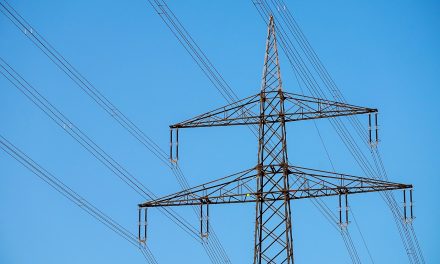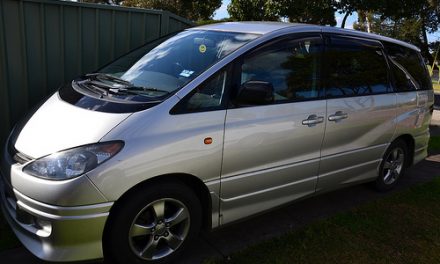Plastic bags are convenient commodities to consumers but they also cause many environmental and ecological problems. Banning of plastic bags in Australia and globally will help to reduce the harms that they bring.
Problems caused by plastic bags
- They litter streets and parks, and subsequently get into and pollute waterways.
- Millions of dollars are spent each year to clean up plastic bag litter.
- They clog drains and sewers, causing flooding, mosquito breeding and diseases such as malaria, cholera and dengue fever.
- They take years to break down, producing huge amounts of rubbish that persist for long periods of time.
- Non-biodegradabe plastic bag wastes release toxic additives such as flame retardants, antimicrobials, and plasticizers into the environment and food ecosystem.
- They are often mistaken as food or nest-building materials, and ingested by marine creatures and other animals, leading to choking, poisoning, blocked intestines and death.
- They entangle and trap marine animals, birds and other wildlife, which then become drowned or prevented from flying.
- They are made from petroleum, a non-renewable resource that can be used to make more important things.
Measures to reduce use of plastic bags
Single-use, light-weight plastic bags, commonly made from low-density polyethylene (LDPE) plastic, are being phased out by governments in Australia and around the world. These are shopping bags traditionally given free to customers as a cheap, strong and hygienic way of carrying purchased items.
To reduce the use of light-weight plastic bags, countries all over the world had either introduced one or more of the following measures:
- Ban the sale, import or manufacture of plastic bags.
- Charge customers for plastic bags.
- Collect tax from shops that provide plastic bags.
Phasing out of plastic bags globally
Some countries acted to ban plastic bags after suffering severe consequences. In Bangladesh, plastic bags clogged up the drainage system, leading to flooding which submerged two-thirds of the country in water between 1988 and 1998. Bangladesh introduced a strict ban in 2002 but plastic bags still remain a major problem for its sewerage and waterway systems. Similarly, plastic bags had clogged the municipal drainage systems in India and were ingested by cows which mistook them as food.
Some countries imposed a nationwide, standardized phase-out while others, such as the United States, implemented the phase-out differently or isolatedly in different states, areas or cities. Some countries carried out the measures in phases. For instance, India banned the production of plastic bags below 20 µm in thickness in 2002. The ban extended to plastic bags less than 50 microns thick on 18 March 2016.
While most European countries imposed a bag charge, many countries in Asia and Africa chose an outright ban. There are varying degrees of success in different countries, which are most often related to poor enforcement of bans or black market activities.
| Continent | Country | Ban Start Date | Bag Charge Start Date | Effective? |
|---|---|---|---|---|
| Africa | Benin | Nov-17 | ||
| Africa | Botswana | 2007 | ||
| Africa | Cameroon | Apr-14 | N | |
| Africa | Chad | In N'Djamena | ||
| Africa | Republic of the Congo | 2011 | ||
| Africa | Eritrea | 2005 | ||
| Africa | Ethiopia | Y | ||
| Africa | Gabon | 2010 | ||
| Africa | Gambia | 2015 | ||
| Africa | Guinea-Bissau | 2016 | N | |
| Africa | Ivory Coast | 2014 | ||
| Africa | Kenya | 2011 | ||
| Africa | Madagascar | 2015 | ||
| Africa | Malawi | 2015 | ||
| Africa | Mali | Y | ||
| Africa | Mauritania | Jan-13 | ||
| Africa | Morocco | Jul-16 | ||
| Africa | Mozambique | Feb-16 | ||
| Africa | Niger | Y | ||
| Africa | Rwanda | 2008 | ||
| Africa | Senegal | Apr-15 | ||
| Africa | Somalia | Y | ||
| Africa | South Africa | 2004 | N | |
| Africa | Tanzania | 2006 | ||
| Africa | Tunisia | Mar-17 (in supermarkets) | ||
| Africa | Uganda | Sep-07 | N | |
| Asia | Bangladesh | 2002 | ||
| Asia | Bhutan | Y | N | |
| Asia | Cambodia | October 1, 2017 | ||
| Asia | China | Jun-08 | N | |
| Asia | Hong Kong | Y | ||
| Asia | India | 2002 | ||
| Asia | Indonesia | 2016 | ||
| Asia | Israel | January 1, 2017 | ||
| Asia | Japan | Varies by region | ||
| Asia | Kazakhstan | Considering | ||
| Asia | Kyrgyzstan | Considering | ||
| Asia | Malaysia | In Penang | ||
| Asia | Myanmar | In Rangoon, Mandalay, Naypyidaw | ||
| Asia | Nepal | Y | N | |
| Asia | Pakistan | In parts of Pakistan | N | |
| Asia | Philippines | In Manila | N | |
| Asia | Singapore | N | N | |
| Asia | Sri Lanka | 2017 | ||
| Asia | Taiwan | In different stages | ||
| Europe | Austria | Voluntary | ||
| Europe | Belgium | In Wallonia & Brussels | ||
| Europe | Bulgaria | Y | Y | |
| Europe | Croatia | 2019 | ||
| Europe | Cyprus | January 1, 2018 | ||
| Europe | Czech Republic | Y | ||
| Europe | Denmark | Y | Y | |
| Europe | Estonia | July 1, 2017 | ||
| Europe | Finland | Voluntary | ||
| Europe | France | Jul-16 | ||
| Europe | Georgia | 2017 | ||
| Europe | Germany | Y | ||
| Europe | Greece | January 1, 2018 | ||
| Europe | Hungary | Voluntary | ||
| Europe | Ireland | March 1, 2002 | ||
| Europe | Italy | Jan-11 | ||
| Europe | Latvia | January 1, 2019 | ||
| Europe | Lithuania | December 1, 2018 | ||
| Europe | Luxembourg | Y | ||
| Europe | Malta | 2009 | N | |
| Europe | Moldova | 2017 | ||
| Europe | Netherlands | Jan-16 | ||
| Europe | Norway | Voluntary | ||
| Europe | Poland | 2018 | ||
| Europe | Portugal | Y | ||
| Europe | Romania | 2006 | ||
| Europe | Serbia | Y | ||
| Europe | Slovakia | January 1, 2018 | ||
| Europe | Slovenia | Jan-19 | ||
| Europe | Spain | 2018 | ||
| Europe | Sweden | Y | ||
| Europe | Switzerland | By 2 largest supermarkets | ||
| Europe | Turkey | In some parts | January 1, 2018 | |
| Europe | United Kingdom | Y | ||
| North America | Antigua and Barbuda | Y | ||
| North America | Bahamas | 2020 | ||
| North America | Belize | Apr-19 | ||
| North America | Canada | Varies by region | ||
| North America | Guatemala | In a few areas | ||
| North America | Haiti | Y | ||
| North America | Mexico | Aug-10 | N | |
| North America | Panama | Jan-20 | ||
| North America | United States | Varies by region | ||
| South America | Argentina | In supermarkets in some regions | ||
| South America | Bolivia | In La Paz | ||
| South America | Brazil | In Sao Paulo (2015) | ||
| South America | Chile | 2018 | ||
| South America | Colombia | 2025 | ||
| Oceania | Australia | Except NSW | ||
| Oceania | New Zealand | N | N | |
| Oceania | Papua New Guinea | Jan-16 | ||
| Oceania | Vanuatu | Jan-18 |
Plastic bag ban in Australia
In 2003, the Tasmanian town of Coles Bay was the first place in Australia to ban plastic bags. South Australia was the first Australian state to ban plastic bags at the checkout, with effect from 4 May 2009. This was followed by the Northern Territory on 1 Sep 2011, ACT on 1 Nov 2011 and Tasmania on 1 Nov 2013. Queensland and Western Australia will follow suit on 1 Jul 2018. Victoria is planning to ban light-weight plastic bags by the end of 2019 while NSW has no such plan.
| State | Start Date | Exception |
|---|---|---|
| South Australia | 4/05/2009 | Heavier bag, Fruit/vege bag |
| Northern Territory | 1/09/2011 | Heavier bag, Biodegradable bag |
| ACT | 1/11/2011 | Barrier bag, Fruit/vege bag |
| Tasmania | 1/11/2013 | |
| Queensland | 1/07/2018 | Heavier bag, Fruit/vege bag |
| Western Australia | 1/07/2018 | |
| Victoria | End-2019 | |
| New South Wales | No plan |
Plastic bag ban by Australian retailers
In July 2017, Coles and Woolworths announced that they will voluntarily stop providing free plastic shopping bags from Jul 2018. Woolworths brought forwards its plastic bag ban to 20 Jun 2018. However, it faced a backlash from customers who did not bring their bags and refused to pay for plastic bags at the checkout. It will now hand out reusable plastic bags, costing 15 cents each, for 10 days until 8 July 2018.
Coles, IGA and Big W will not provide free plastic bags from today, 1 Jul 2018. Learning from the lessons of Woolworth, Coles will be opening all checkouts between 10am and 6pm at stores in Victoria, New South Wales, Queensland and Western Australia, to cope with expected delays.
| Retailer | Ban Start Date |
|---|---|
| Woolworths | 20/06/2018 |
| BWS | 20/06/2018 |
| Coles | 1/07/2018 |
| IGA | 1/07/2018 |
| Big W | 1/07/2018 |
| Target | 2019 |
| Kmart | 2019 |
Possible unintended consequences of plastic bag ban
- Increased use of bin liners as seen in South Australia. These have a greater environmental impact than plastic bags as they do not break down well in modern landfills.
- This may increasee the use of paper bags which are less environmentally friendly than plastic bags due to a higher carbon footprint.
- Increased illness (e.g. in San Francisco) due to the lack of care by consumers in maintaining alternative shopping bags in a clean and healthy condition.
Reference
- https://www.smh.com.au/business/consumer-affairs/bringing-reusable-bags-has-been-a-challenge-woolworths-backflip-on-plastic-bags-20180629-p4zogb.html
- https://www.news.com.au/technology/environment/conservation/big-australian-retailers-are-refusing-to-axe-plastic-bags/news-story/7445f8b2e213cec79fc331fd0ec4a022
- https://www.theguardian.com/environment/2018/jun/06/coles-and-woolworths-plastic-bag-ban-and-the-choices-that-remain
- https://en.wikipedia.org/wiki/Phase-out_of_lightweight_plastic_bags_in_Australia
- https://en.wikipedia.org/wiki/Phase-out_of_lightweight_plastic_bags
- https://study.com/blog/which-countries-have-banned-plastic-bags.html




